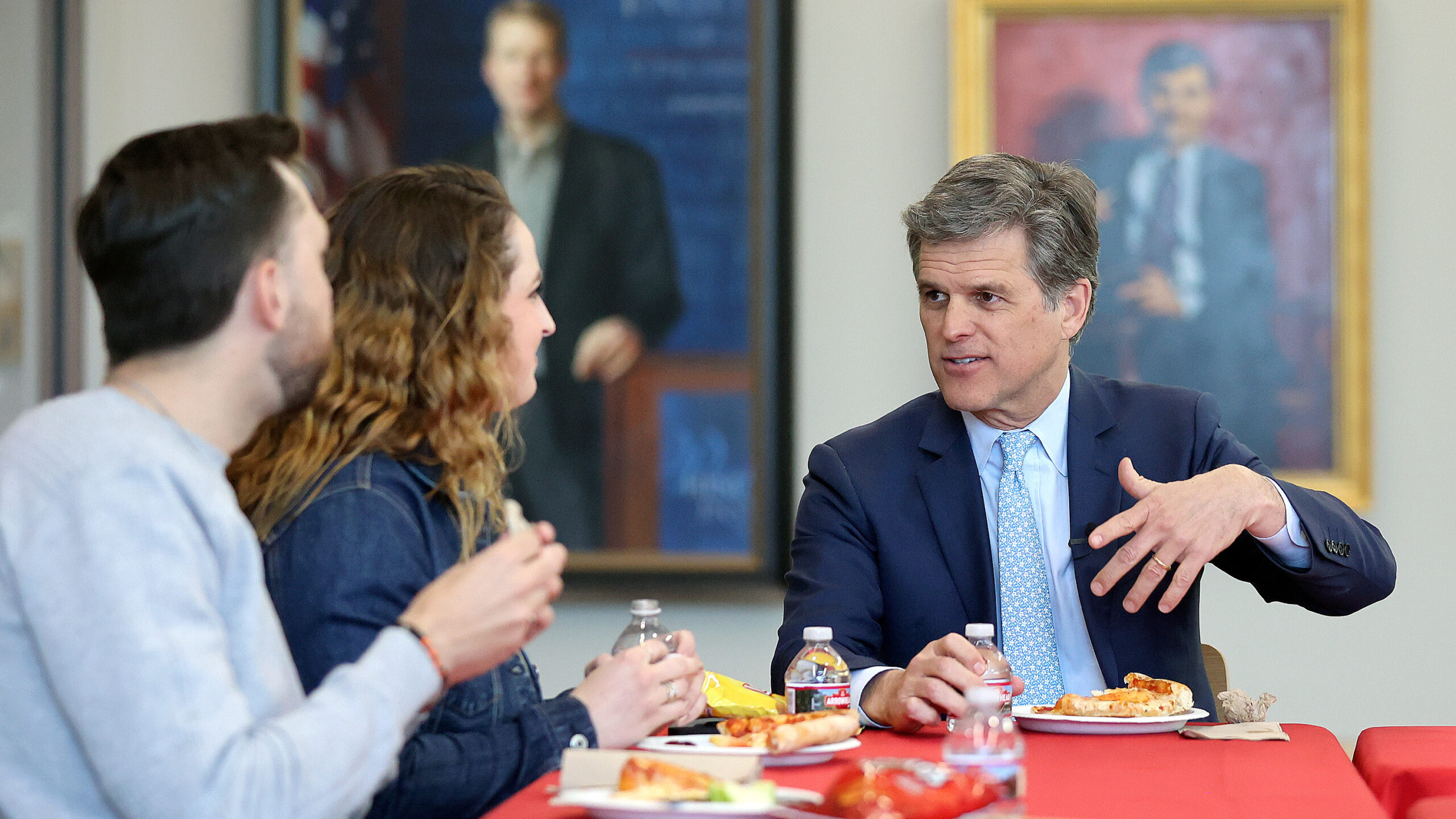INSIDE SOURCES
Inside Sources: Studying trust (and distrust) in America
Jul 30, 2019, 5:03 PM | Updated: Apr 13, 2020, 2:30 pm

Pew's research shows Americans believe we have a problem with trust. Photo: Getty Images
Does America have a trust problem?
Lee Rainie of the Pew Research Center joined Boyd Matheson on “Inside Sources” to talk about a new study titled “Trust and Distrust in America.”
Rainie, the lead author of the report, said one of the questions the study asked that hadn’t been asked before was if Americans thought the nation had a trust problem overall. Rainie said the study found a lot of people thought trust has been shrinking, both in the federal government and in each other. Specifically, 68% say it is very important to repair the public’s level of confidence in the federal government, and 58% say the same about improving confidence in their fellow Americans.
Rainie said those polled said distrust in the federal government and in each other makes it harder to solve problems, such as health care and climate change.
“It’s impossible to solve problems because you can’t negotiate and compromise if you don’t trust the other person,” said Matheson.
Matheson asked Rainie if the study explored whether distrust in government is starting to fray the fabric of society.
Rainie said the study found that people who had high levels of trust “feel pretty good about government agencies and their fellow citizens,” whereas those who had a low level of trust don’t think their fellow citizens will cast informed votes in elections or accept election results or step in to help solve a community problem.
Americans have relatively high trust in scientists, the military and police officers, Rainie said, but have relatively low levels of trust in business leaders, elected officials and journalists.
Matheson asked Rainie in what areas do Americans still hold trust?
He said, “75% of Americans have confidence that people will report a serious local problem to authorities, that they will obey most of the basic federal and state laws, that they will help each other, especially those in need, and that they will honestly report their full income.”
Rainie said those findings stand in contrast to areas where there’s more of a split verdict such as:
- If election results will be accepted regardless of who wins, or
- Whether people will stay informed about important issues, or
- If they might consider changing their mind if they find out information that disagrees with their point of view.
Rainie said most Americans don’t have a lot of confidence their fellow citizens will cast informed votes in elections (57%) or hold civil conservations with people who have different views from theirs (58%).
Matheson asked what the generational divide looks like when it comes to trust.
“Older Americans tend to be more trusting of lots of things,” which is consistent with a lot of research over years, said Rainie.
The study found young adults are about half as hopeful as their elders when they are asked how confident they are in the American people to respect the rights of those who are not like them: About one-third (35%) of those ages 18 to 29 are confident Americans have that respect, compared with two-thirds (67%) of those 65 and older.
Matheson asked Rainie what trends Americans need to be watching for when it comes to trust.
Rainie said as a researcher he was most surprised by this finding: 84% of Americans believe it is possible to improve the level of confidence people have in the government. Also, he said, 86% believe it is possible to improve confidence in each other across the nation.
“Some of the things they are looking out for are a reduction in partisanship and group-centered tribalism.
“They are hoping that news coverage might emphasize more stories of cooperation or things that might fall into the category of ‘good news,’ and they are really looking at the local level, that neighbors leave their homes, look up from their screens, start talking to their other neighbors and start working shoulder to shoulder to solve problems,” Rainie said.













